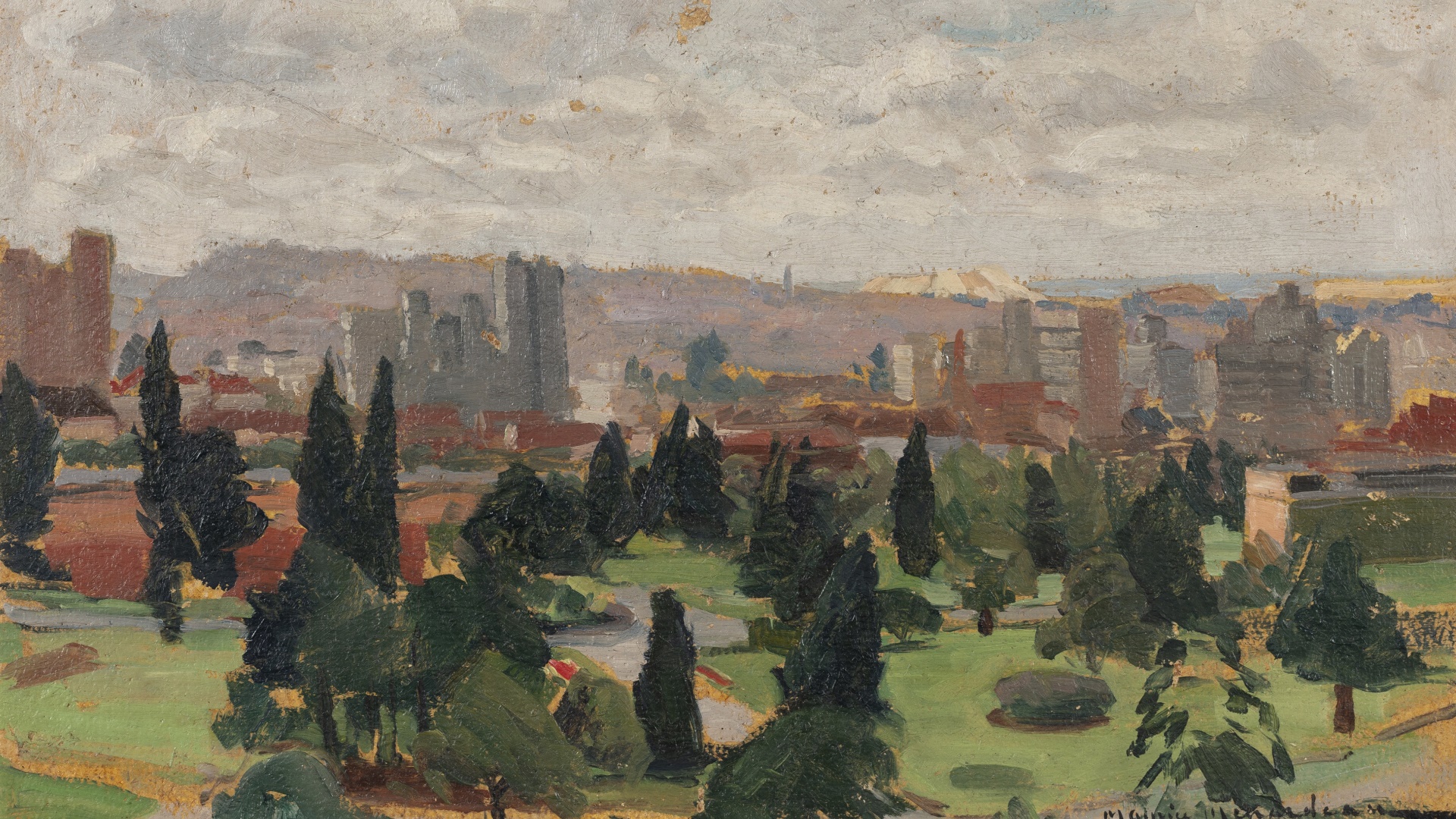

29/11/2024 General News, Timed-Online Auctions, Insights

Lot 19: Robert Gwelo Goodman | Mineshaft in moonlight | R10 000 - 15 000
As one’s eyes move across each image in All Roads Lead to Johannesburg, a narrative unfolds that reflects the complex and captivating story of "Joburg" - as locals call it. The title is drawn from a quote in Alan Paton’s renowned novel Cry, the Beloved Country, which explores the city's pre-Apartheid history. The book captures Johannesburg's allure, alongside its poverty, injustice, and the enduring hope for a better future. The phrase "all roads lead to Johannesburg" resonates not only in Paton’s work but also in the visual story told through this collection of artworks by modern masters, each reflecting the multifaceted nature of the city.
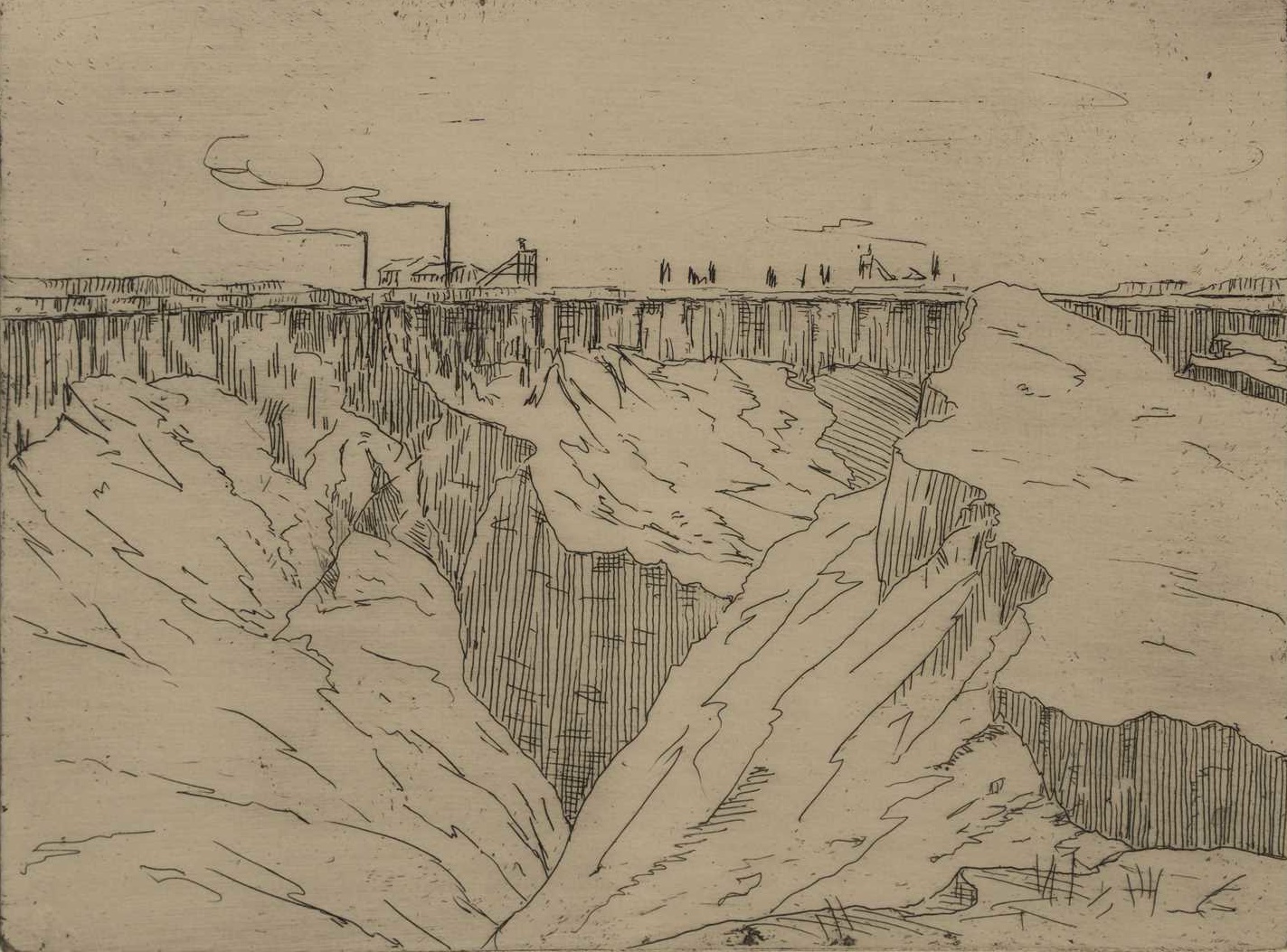
Lot 27: George Pilkinton | Du Toitspan Mine | R 1 500 - 2 500
The dominant theme in this collection is the gold mines. What is now a sprawling metropolis covering around 1,700 km² was once a natural landscape typical of the Gauteng ecosphere. The area was not uninhabited; it had been home to the San people, followed by migrants from East Africa, Dutch settlers, and Sotho-Tswana communities living to the north, near the Vaal River. However, everything changed with the discovery of gold in 1886 by Australian prospector George Harrison, which quickly attracted people from around the world, transforming the region into a global mining hub.
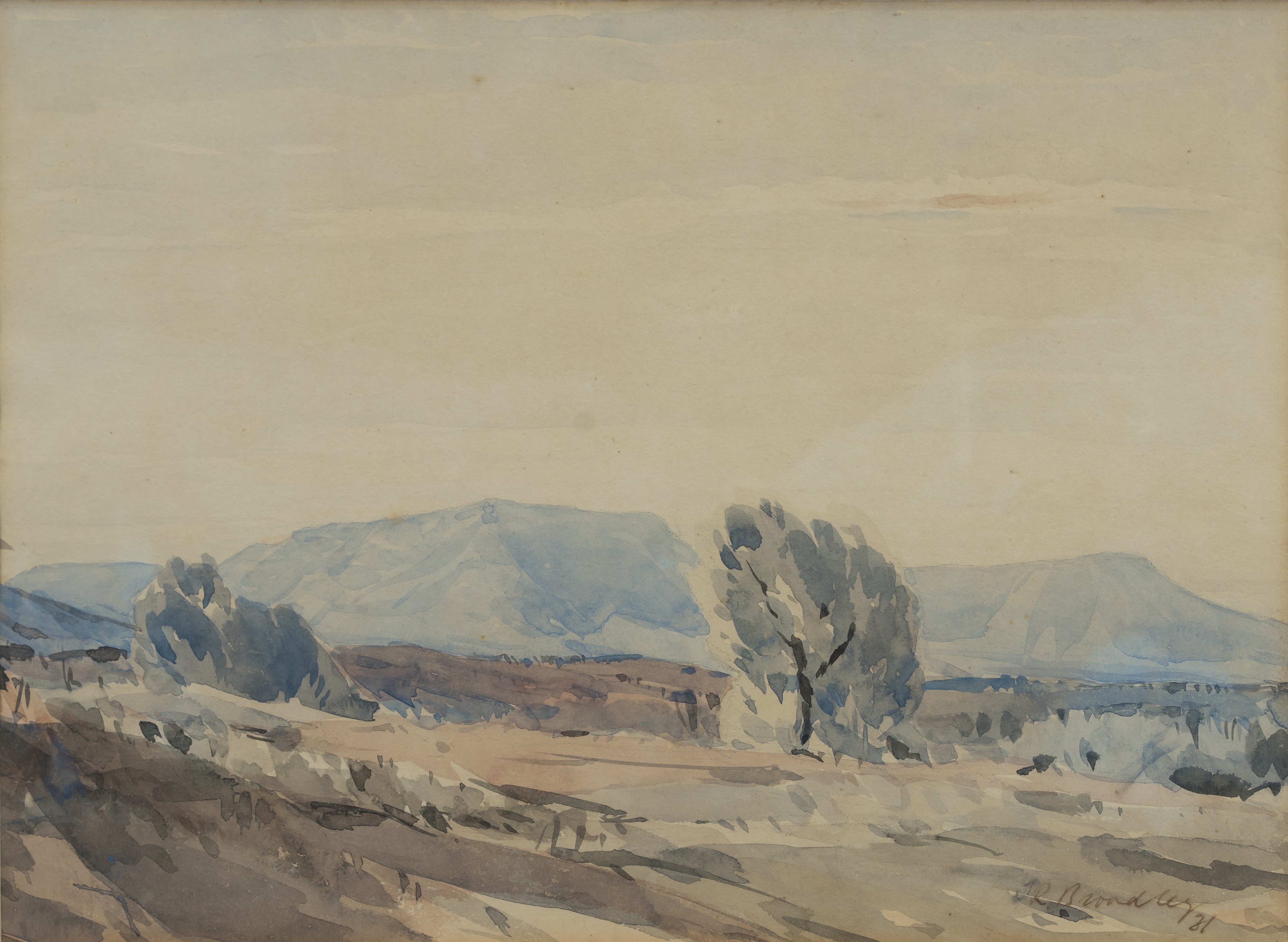
Lot 18: Robert Broadley | Windy landscape | R 2 000 - 4 000
Robert Broadley and Enslin du Plessis’ works depict this natural landscape that once defined Johannesburg before its transformation. Their work also reflects on the introduction of invasive species, such as the Blue Gum tree, which, like the gold mines, has become deeply ingrained in the city's ecosystem. The Blue Gum, a type of Eucalyptus tree native to Australia, is now ubiquitous throughout Johannesburg. During the gold rush, millions of these trees were planted, particularly in what is now Saxonwold, where they were used by miners as wooden props to support underground tunnels.
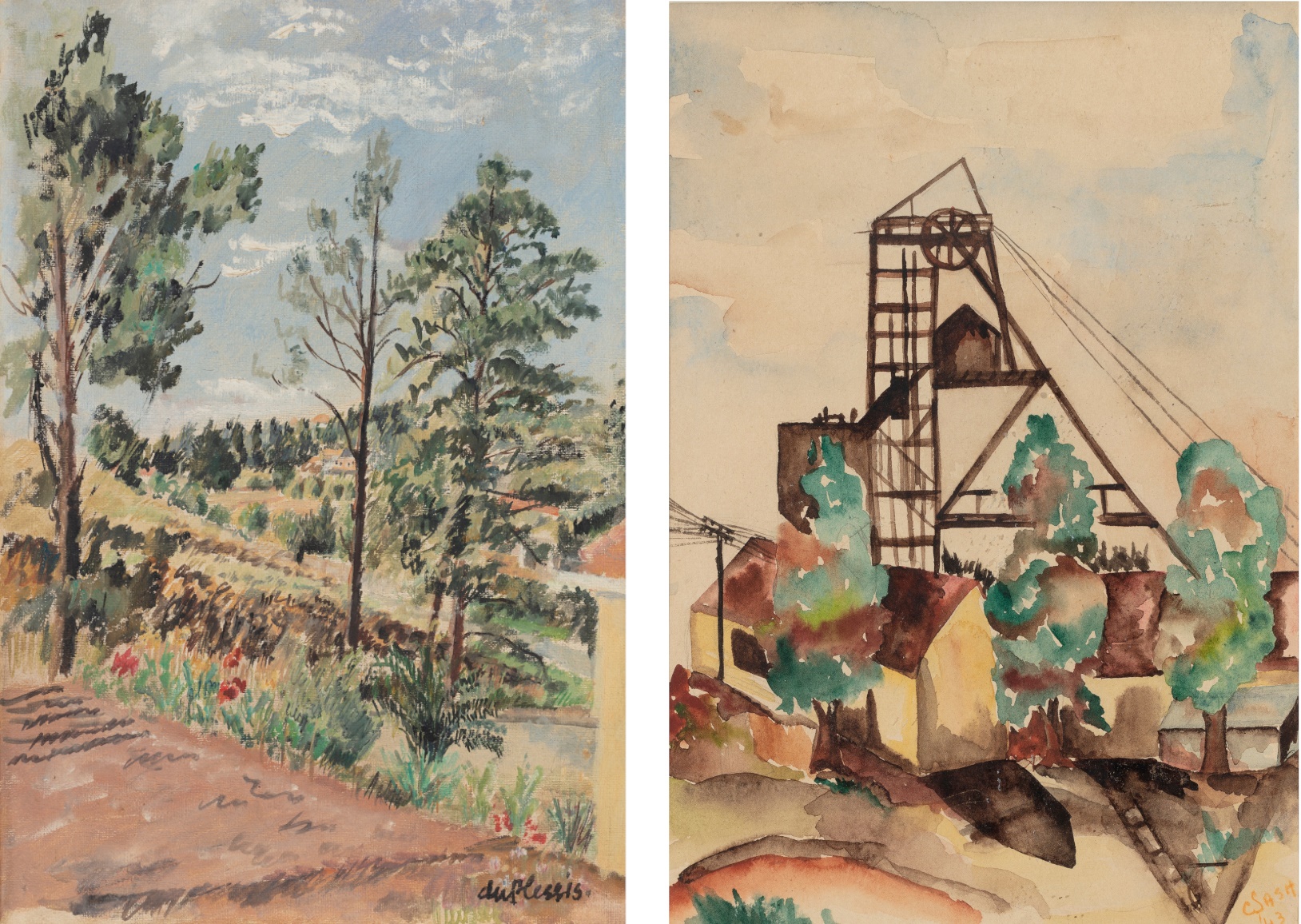
LEFT: Lot 17: George Enslin | Bluegum trees | R 20 000 - 30 000
RIGHT: Lot 24 | Cecily Sash | Mine Shaft | R 1 000 - 2 000
Pieter Wenning, George Pilkington and later Albert Newall capture the impact of the mines, illustrating how the mining operations transformed the landscape as miners dug deeper in search of gold. While, Cecily Sash and Maud Sumner present the structures that made the gold rush possible, including the mine shafts and factories that became central to the industry’s growth.

LEFT: Lot 26 | Pieter Wenning | Bezuidenhout Valley II | R 1 000 - 2 000
CENTRE: Lot 23 | Maud Sumner | Mine Scene | R 18 000 - 24 000
RIGHT: Lot 20 | Albert Newall | Abstract mine scene with gemstones and diamonds | R 4 000 - 6 000
Most importantly, Paul Alberts and Joe Maseko pay poignant tribute to the workers who laboured in the mines, highlighting their immense but often unrecognised contribution to both the mining industry and the history of Johannesburg. While these two works focus on the conditions of the late 1900s, they also evoke the historical realities faced by miners in the late 1800s. Their powerful depictions honour the strength and resilience of the workers who played a crucial role in shaping the city's development despite enduring exploitation and hardship.
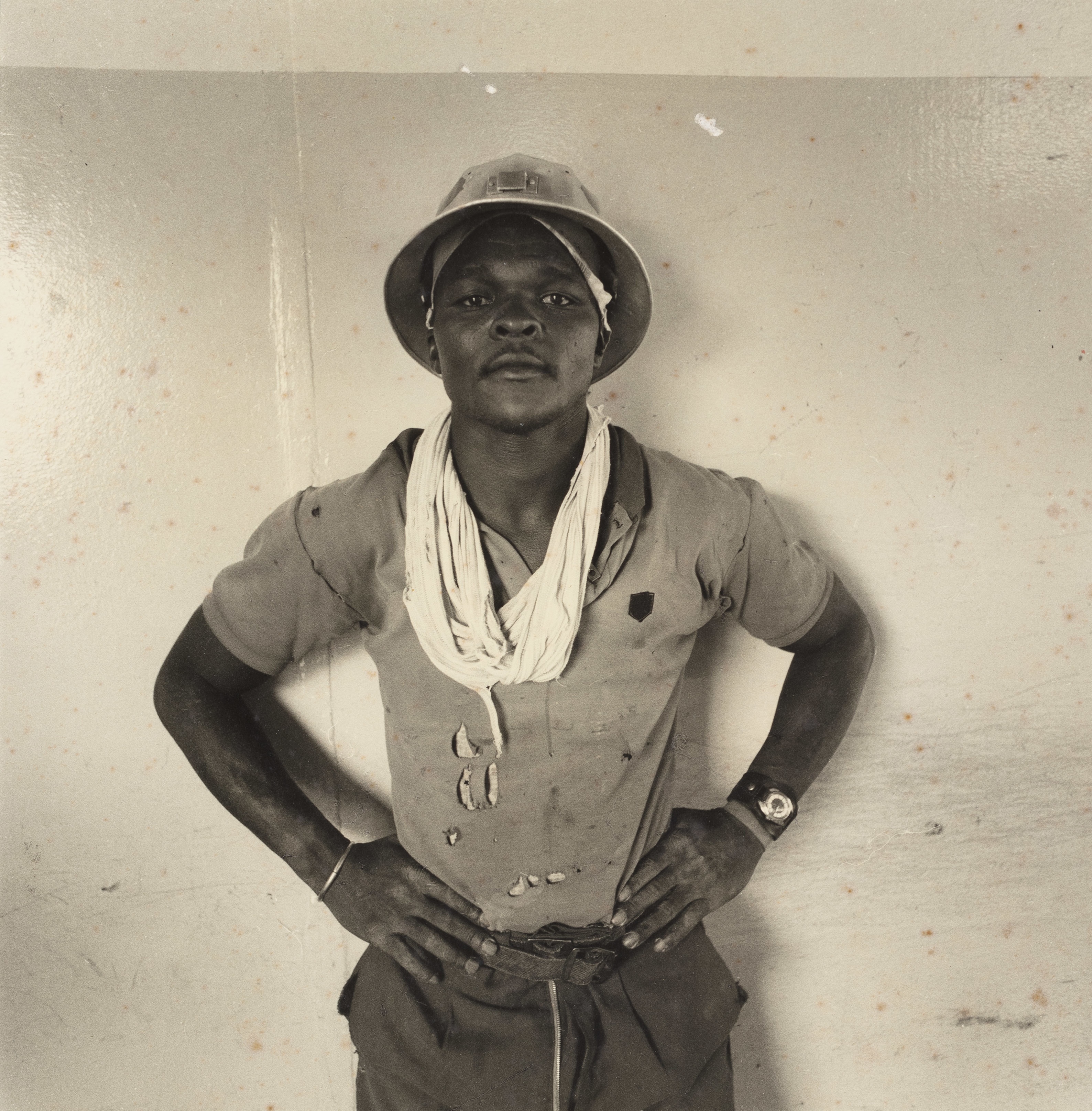
Lot 111: Paul Alberts | Mine worker at Platinum mine, Rustenburg, 1982 | R 6 000 - 8 000
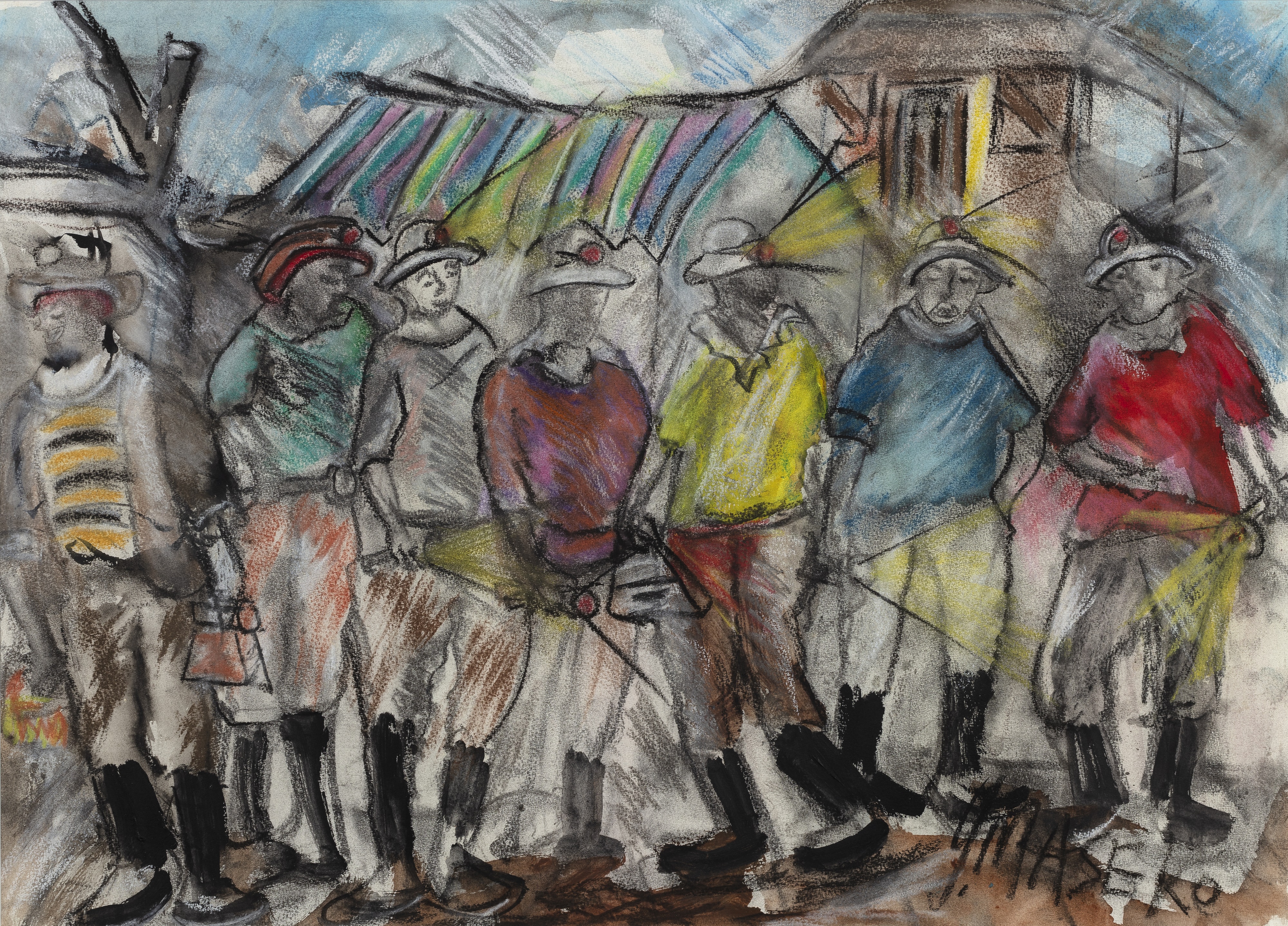
Lot 25: Joe Maseko | Miners | R 4 000 - 6 000
Maurice Menardeau and Harry Trevor offer captivating conventional and futuristic glimpses of the city that would emerge from the waves of both permanent and temporary migration as people from around the world flocked to Johannesburg to join in the rush for gold.
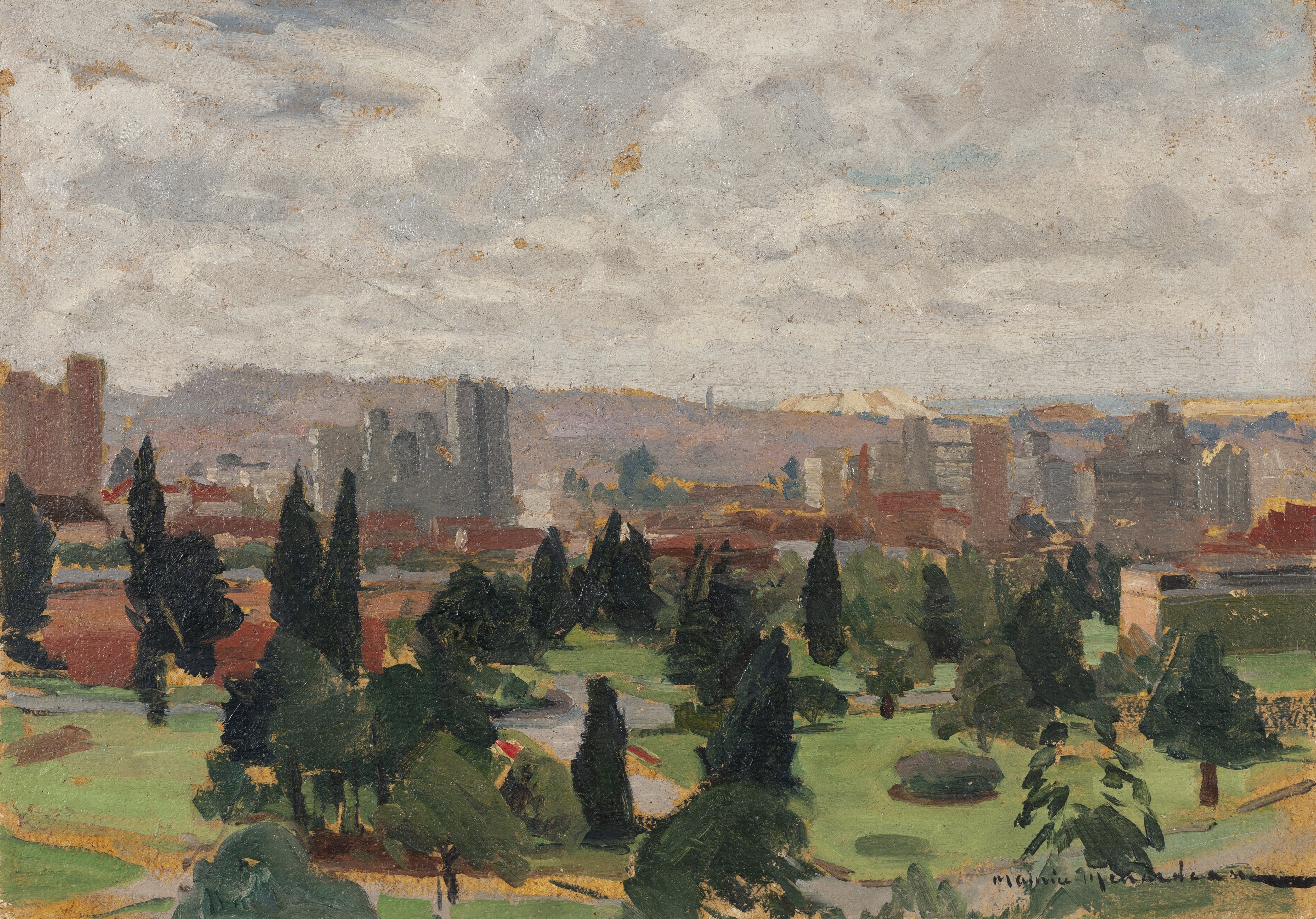
Lot 16: Maurice Menardeau | View of the city from Joubert Park | R 5 000 - 7 000
This collection of historical works serves as both a memory archive and a testament to how rapidly a city can emerge and evolve. While Johannesburg continues to grapple with the lasting effects of an unjust past and its mining legacy, it remains the city where key figures like Nelson Mandela and Walter Sisulu joined the resistance, and where artists and musicians such as Hugh Masekela, Dolly Rathebe, and Gerard Sekoto lived and created works. It is a place where countless stories have and continue to unfold.
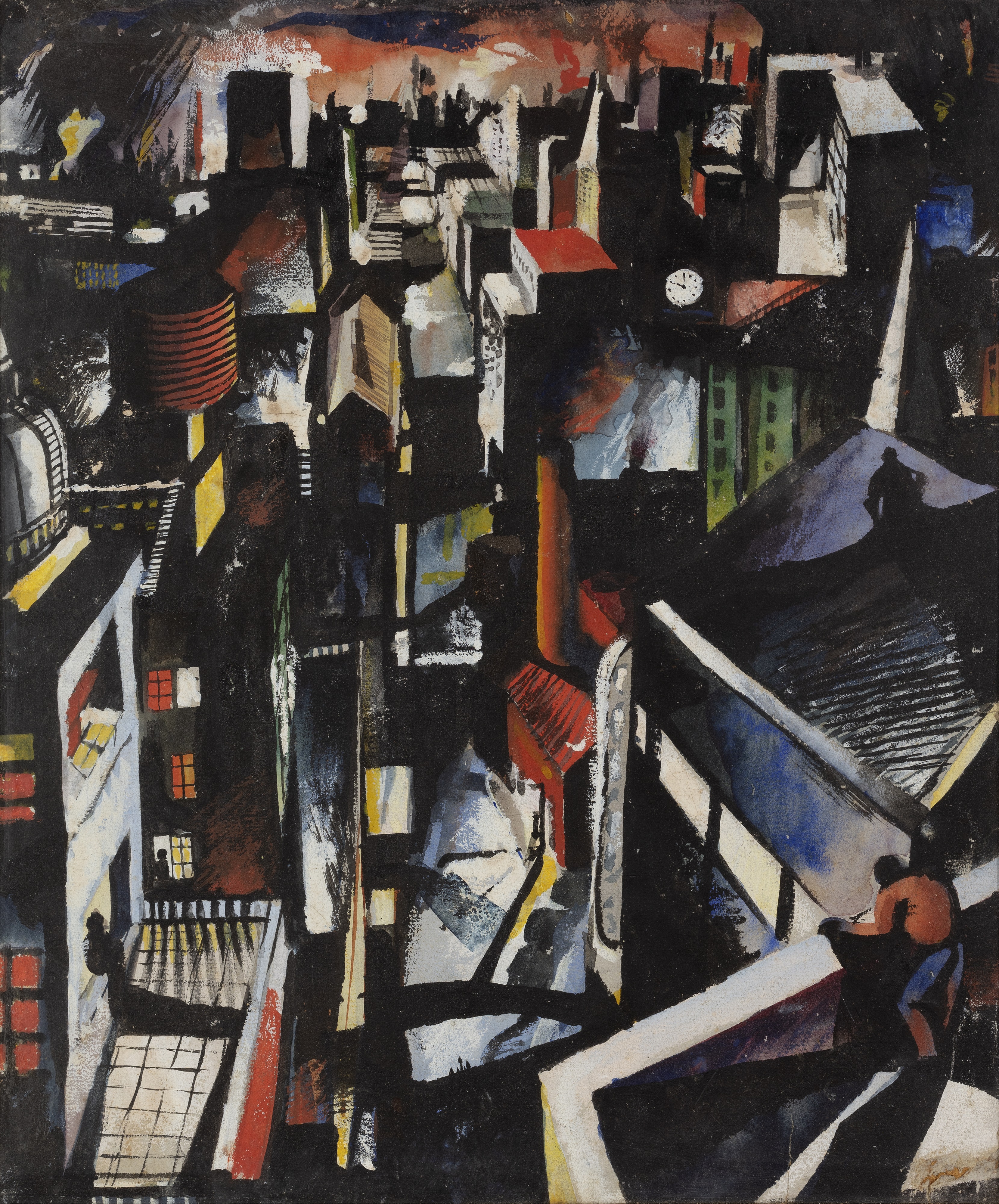
Lot 16: Maurice Menardeau | View of the city from Joubert Park | R 7 000 - 10 000
Auction
20th/21st Century Classics
26 November to 3 December 2024
Discover more from 20th/21st Century Classics
SALE ENQUIRIES
Cape Town: +27 21 422 5100 | amy@aspireart.net
Johannesburg: +27 10 109 7989 | carina@aspireart.net